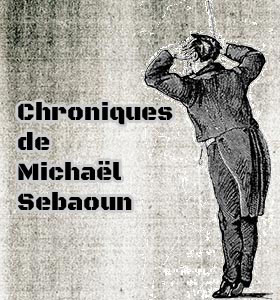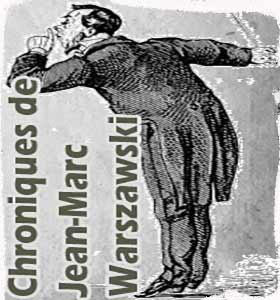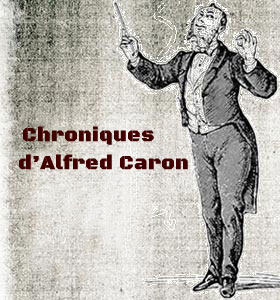British Forum for Ethnomusicology Annual Conference
3-6 April 2025, Cambridge
University of Cambridge
Website
The conference theme for 2025 is Musical Futures. However, presentation of any new research is welcome, whether it engages with the theme or not.
In Reckoning, political scientist Deva Woodly concludes her account of the Black Lives Matter movement with a meditation on futurity, writing: ‘Futurity is a word with multivalent meanings; it indicates the future time, a future event, or renewed or continuing existence. Futurity is the conviction that the part of the story one is living in is not and cannot be the whole of it’ (2021).
In a time of multiple, intertwined crises across the planet, what does it mean to imagine and cultivate musical and ethnomusicological futures? A global pandemic, the climate crisis, wars in Ukraine and Gaza, mass displacement of populations, xenophobic violence, and the defunding of Higher Education across the UK and beyond pose existential questions about the value of music and music studies in the face of such difficulties. Simultaneously, technological developments—the rapid expansion of generative AI, online disinformation, virtual reality, and cyberattacks—have potential to further destabilise the many societies with which we engage.
While such complexity may give rise to pessimism or cynicism, certain traditions of thought have long grappled with social and political challenges. Afrofuturism (and, in a way, its inversion, Afropessimism) envisions new possibilities and agency for Black life, often through the vehicle of music and the arts. Theorists of sexuality and gender have drawn attention to how queer and trans people have found new domains of living and potentiality, whether ‘utopian’, ‘deviant’, or otherwise marginalised. At the same time, decolonial historians have increasingly noted how colonialism and other forms of political violence also make frequent recourse to a vision of a particular future. In short, the future—musical and otherwise—has always been a site of struggle, ambiguity and possibility. Reflecting on ‘musical futures’ invites us to imagine both a hope for and consideration of the future.
Keynote speakers for the event will be: Marié Abe (UC-Berkeley), Georgina Born (UCL), and Luis Manuel Garcia-Mispireta (Birmingham).
Some questions we hope to explore through this conference include:
What kinds of futures are musicians and music scholars today imagining, building, rejecting, dismantling, or otherwise engaging?
How has generative AI shaped music-making and music studies, and how might it in the future?
What role should (or might) ethnomusicologists and other music scholars play in combatting disinformation and its increasingly violent consequences?
How might ethnomusicologists engage with ideas of futurity—musical, performative, sonic—that have been imagined or cultivated through Afro-diasporic and LGBTQ+ theory and praxis?
How does ethnomusicology’s disciplinary past shape or constrain its possible futures? Should ethnomusicologists be pursuing other disciplinary futures?
How might questions of sustainability and resilience play a more central role in ethnomusicology?
How do ecological and geopolitical crises, past or present, impact musical communities? What kinds of scholarly responses are warranted in such circumstances?
What implications do recent cyberattacks on academic institutions (e.g. University of Manchester, the British Library) have for ethnomusicology as a discipline and the study of music in Higher Education?
How do ongoing technological and cultural developments shape the possibilities of ethnography in the near future? What challenges lie ahead? To what degree can ethnography, with its standard focus on the (recent) past, offer access to questions of futurity at all?
More broadly, what are some key concepts and directions emerging in the field of music research? What challenges might music scholars anticipate in the coming years?
We very much welcome other creative and/or critical responses to the theme beyond these questions.
And again, we welcome submissions of any new ethnomusicological research, whether it relates to this theme or not.
DEADLINE FOR SUBMISSIONS: 2 December 2024, 5 pm via ONLINE SUBMISSION FORM
Please note that all presenters must be members of BFE at the time of the conference.
We welcome proposals for:
Papers (20 minutes with 10 minutes for questions)
Panels (3 or 4 related papers on a shared theme, totalling 1.5 or 2 hours)
Roundtables (3–5 shorter presentations, 10–15 minutes each, followed by a chaired discussion, totalling 1.5 or 2 hours)
Performance-based presentations or workshops (20 or 50 minutes with 10 minutes for questions). Please contact the organising committee to discuss possible ideas.
Posters
Films, audio pieces, podcasts/digital audio, or other media presentations (20 or 50 minutes with 10 minutes for questions)
Collaborative presentations, e.g. including an ethnomusicologist with one or more practitioners, performers, or other research participants. Collaborative research participants do not need to be members of BFE, although the person submitting the proposal should be at the time of the conference. Please contact Peter McMurray to discuss possible options.
Abstracts for individual papers should be no more than 250 words. For panels, please submit a panel/roundtable description (up to 250 words) along with abstracts of each individual paper (up to 250 words). For roundtables, please submit an abstract for the session (up to 500 words), including some indication of each presenter’s contribution. For all other presentations (including collaborative presentations, media presentations and workshops), please submit an abstract for the session (up to 250 words). For all formats, please include a short biography (up to 100 words) for all presenters.
All abstracts will be peer reviewed. We aim to respond to applications by 18 December.
Conference Format and Remote Participation
This conference will primarily be an in-person event in order to facilitate extensive, in-depth interactions between participants. However, there will be limited provision for remote presentation and other hybrid formats. If this is something you anticipate needing to allow you to participate, please indicate that in the submission form.
Pre-Conference Workshop, 2 April 2024 – on ethnomusicology and global music history
As a preliminary to our conference on ‘musical futures’, we plan to hold a day-long workshop on Wednesday, 2 April, focusing on musical and auditory pasts, with particular focus on intersections between ethnomusicology and the emerging area of global music history. Like the BFE conference, the event will have a primary in-person component but with potential for remote participation. Further details will be announced in due course. The application procedure will be separate from that for the main conference.
Conference Codes of Conduct
The conference will be run in accordance with the BFE/RMA Conference Code of Conduct (here). By taking part in the conference, you agree to be bound by these codes.
Bursaries and Student Prize
We invite presenters and attendees who are students, who are BIPOC scholars, or who are unable to pay fees because of severe economic, political or other constraints to apply for a subsidy or waiver to help defray the costs of participating in the conference. Details concerning available bursaries will be circulated on the BFE email list closer to the conference date.
Student presenters are also encouraged to submit their papers for the BFE Student Prize, awarded annually for the best student paper presented at the BFE annual conference.
Conference Organising Committee :
Peter McMurray,
Alisha Lola Jones
Stephen Wilford,
Vanessa Paloma Elbaz,
Dunya Habash,
Jacob Olley,
Rashel Pakbaz.




 À propos - contact |
S'abonner au bulletin
| Biographies de musiciens | Encyclopédie musicale | Articles et études | La petite bibliothèque | Analyses musicales | Nouveaux livres | Nouveaux disques | Agenda | Petites annonces | Téléchargements | Presse internationale | Colloques & conférences | Collaborations éditoriales | Soutenir musicologie.org.
À propos - contact |
S'abonner au bulletin
| Biographies de musiciens | Encyclopédie musicale | Articles et études | La petite bibliothèque | Analyses musicales | Nouveaux livres | Nouveaux disques | Agenda | Petites annonces | Téléchargements | Presse internationale | Colloques & conférences | Collaborations éditoriales | Soutenir musicologie.org.
Musicologie.org, 56 rue de la Fédération, 93100 Montreuil. ☎ 06 06 61 73 41.
ISSN 2269-9910.

Samedi 8 Novembre, 2025
